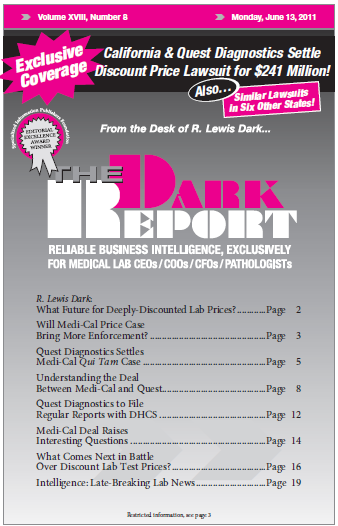CEO SUMMARY: It is now possible to see the specific language in the “Settlement Agreement and Release” document executed by the California State Attorney General and Quest Diagnostics Incorporated. For those clinical lab managers—and the attorneys who represent their laboratory companies—there is mixed news and guidance about 51501(a) from this agreement. That’s because, while assenting …
Understanding the Deal With Medi-Cal and Quest Read More »
To access this post, you must purchase The Dark Report.


